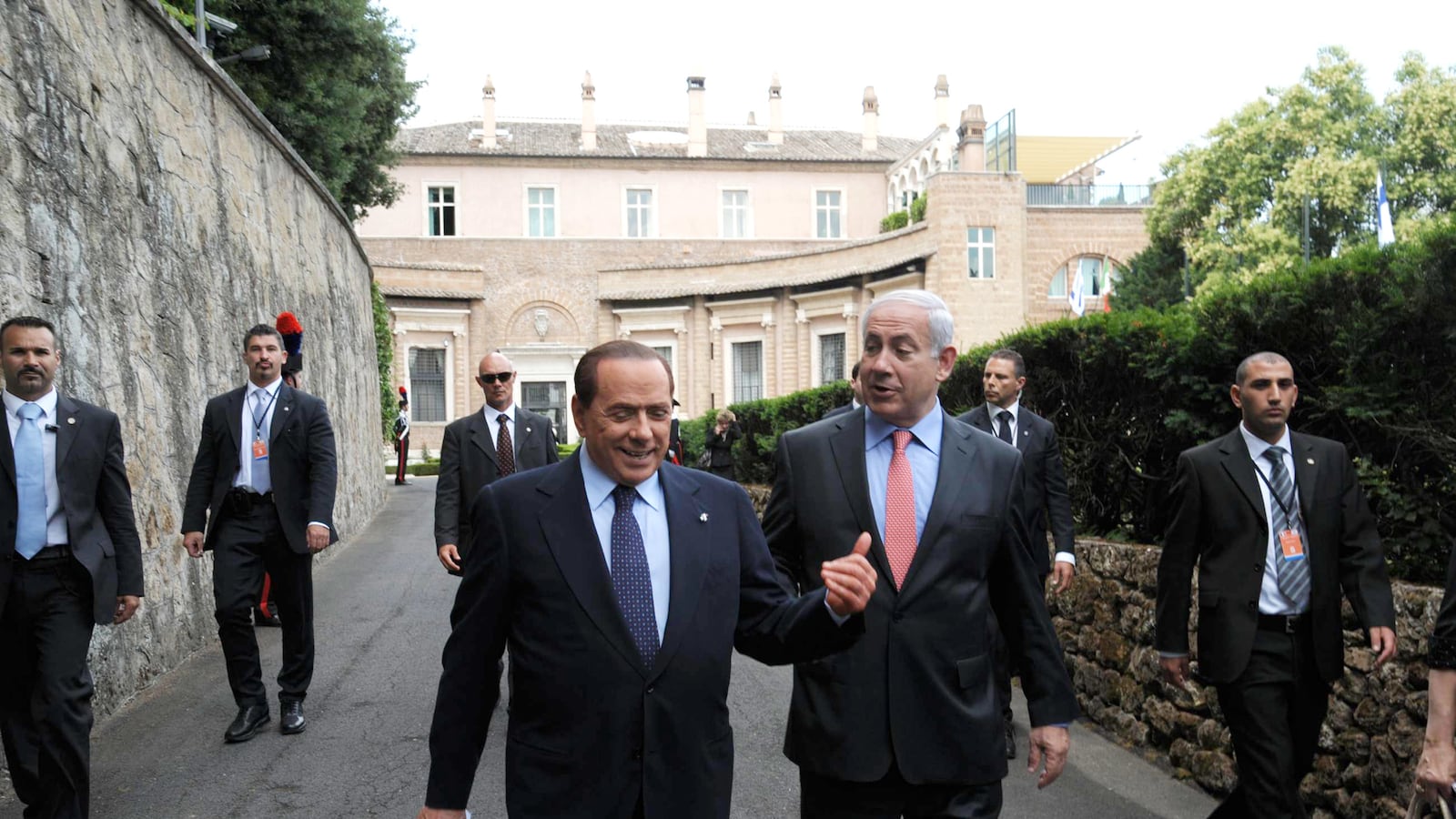When he visited in Rome earlier this week, Israeli Prime Minister Benjamin Netanyahu made headlines with his undiplomatic selection of gifts for the Pope, including a book on the Spanish Inquisition authored by his own father, the late historian Ben Zion Netanyahu.
But Bibi didn't come to the “eternal city” just to preach to the pontifex about the persecution of Jews in Medieval Spain.

As Israel seems at odds with the U.S. and other Western allies that have signed an interim agreement with Tehran, Italy is Netanyahu's last friend in Europe―at least, when it comes to Iran's nuclear program. Yet this situation is not going to last long, unless Netanyahu puts some effort into it.
Italy finds itself in a very peculiar position when it comes to Israel and Iran. On the one hand, it is the only major European country that hasn't supported the interim deal. On the other, it has tremendous business interests in the Persian Gulf, and until recently had even prided itself on a “special relationship” with Iran.
Currently, Italy is Iran's second-largest business partner in Europe and its fifth-largest business partner worldwide, after Russia, China, Japan and Germany. So why hasn't Italy joined the so-called “P5+1” (five permanent members of the U.N. Security Council plus Germany) negotiations that led to the interim agreement last month?
The short answer is: because Silvio Berlusconi chose not to―presumably in solidarity with Israel.
When negotiations between Iran and the West began back in 2003, Italy was asked to join the so-called “European contact group” that laid the ground for subsequent negotiations including the U.S. Under the auspices of E.U. foreign policy chief Javier Solana, France, Great Britain and Germany took the lead in initiating talks with Tehran about its nuclear program.
The basic idea behind the contact group was to have Europe's two permanent members of the U.N. Security Council (France and the UK) and Iran's two major business partners in Europe (Germany and Italy) negotiating with the government of Iran.
However, Berlusconi, who was prime minister at the time and enjoyed a close relationship with Israel and the Bush administration, refused to join the club. Most likely, he was concerned about the reaction from Israel, which opposes the current deal, and the U.S.
The details have emerged recently in the Italian press, with two separate investigations by Linkiesta, an online magazine, and La Stampa, a daily newspaper, spurring a debate in the aftermath of the announcement of the Iran deal.
Now, some government officials believe that Berlusconi's decision to stay out of the deal may have a negative impact, and say so openly. “In retrospect, keeping out of the negotiations in 2003 wasn't such a smart idea,” Italy's Foreign Minister Emma Bonino said in an interview with the Il Corriere della Sera daily.
That may be precisely what Netanyahu is worried about: that Israel's last ally against the Iran deal may change its mind.
Indeed, Eni, Italy's partially state-owned oil company, was among the first companies contacted by Iran’s oil ministry after the interim deal was announced, as the Financial Times has reported.
Eni has deep historic ties with Iran that go back to the Mossadegh era, when, under the leadership of Enrico Mattei (somewhat of a legendary figure in Italy) the company carved a primary role for itself in Iran's plan for the nationalization of oil.
Even after the 1979 revolution and after sanctions were imposed on Iran, Eni has continued doing business in the country, building pipelines, refineries and importing crude oil. However, sanctions had a negative impact on business and many in the Italian entrepreneur community look favorably on the easing of Iran's isolation.
Prime Minister Enrico Letta himself has declared his interest in joining negotiations with Iran sometime in the future.
When he met Netanyahu last week, however, Letta assured the Israeli prime minister that “Israel's security is a non-negotiable issue.” Most importantly, he said Italy opposes the lifting of sanctions against Iran.
The truth is that Letta, a Democrat heading an embattled coalition government, is in an extremely weak position right now.
With Berlusconi's supporters having just left the coalition and his own Democratic party to choose a new leader next week, Letta is not in a position to change Italy's foreign policy. So Netanyahu can feel safe: His last ally against the Iran deal will stick to the 2003 Berlusconi policy. For now, at least.






